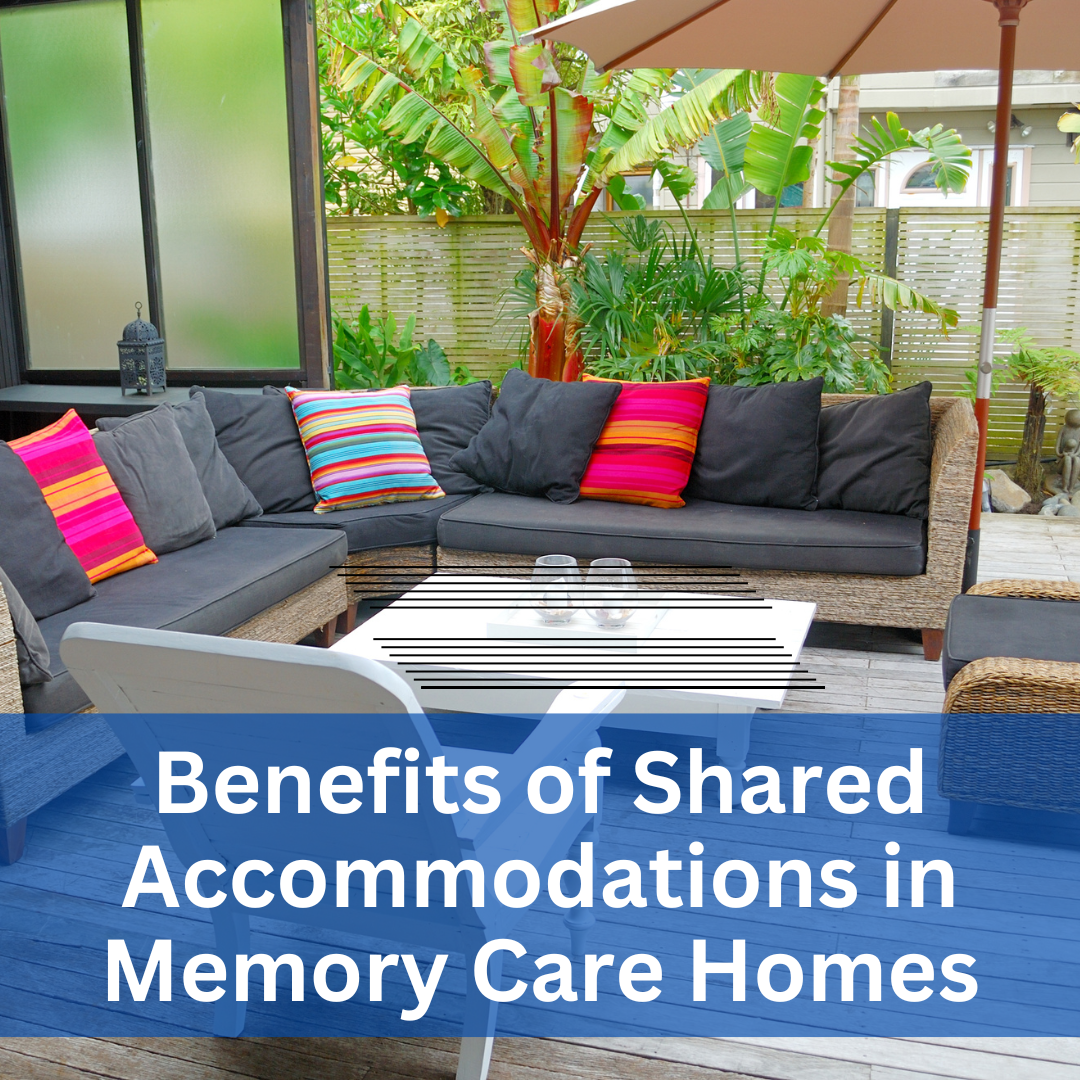|
When choosing a suitable place for a family member dealing with memory challenges, the idea of a private apartment might seem appealing. However, there's a new perspective emerging. Families are now realizing that shared rooms in memory care homes can offer unexpected advantages—slowing cognitive decline, boosting engagement, and saving money.
The real essence of these benefits shines in residential senior living, where a small group of less than ten residents lives in a suburban home, guided by dedicated caregivers. At Bridgeway Senior Healthcare, we're here to shed light on these benefits and share insights with you. Shared Rooms in Memory Care: Enhancing Lives As we explore this topic, it becomes clear that shared rooms provide multifaceted benefits that go beyond just sharing space. These shared spaces become triggers for positive experiences, bringing about improvements in various ways. 1. Encouraging Engagement Imagine a loved parent who used to be an enthusiastic knitter but is now struggling with cognitive challenges. Their transformation from being active to more withdrawn is a sad reality. But here's the solution—cueing. The presence of a roommate or caregiver acts as a cue for daily activities, promoting engagement. This simple interaction can reignite the spark within them, encouraging participation in various activities. It's a small yet impactful way to make their day special. 2. Fostering Social Interaction Residential homes aim to break the barriers of isolation by creating shared experiences. Shared rooms play a pivotal role in achieving this goal. By turning bedrooms into spaces of social interaction, these rooms inspire residents to step out of their comfort zones. Observing a roommate heading out for breakfast, preparing for a walk, or exchanging warm greetings with family members creates a domino effect. Others are inspired to join in, resulting in a community full of movement and interaction. 3. Balancing Privacy and Companionship Respecting personal dignity is crucial in residential senior living. Activities like bathing, dressing, and grooming are carried out with top-notch services and amenities, and a choreographed approach that preserves privacy while promoting camaraderie. Moments of solitude coexist with cues that mark the start of a new day or the peacefulness of bedtime preparations. This delicate balance creates a nurturing environment that respects both personal space and companionship. 4. Easing Sundowning Effects The evening hours can be challenging for individuals with cognitive issues. The transition from day to night can trigger behavioral changes, leading to confusion and anxiety. Shared rooms help ease this transition by providing a familiar face at bedtime and upon waking up. The intimate atmosphere of residential senior living offers comfort and alleviates the stress of this transition. 5. Creating a Familiar Environment For many older adults, their routines are closely linked to being close to a loved one. This essence of companionship extends to shared rooms, recreating the comfort of familiarity. The soothing feeling of companionship is woven into the fabric of memory care, providing comfort and security. 6. Enhanced Understanding of Care Having a roommate increases the level of care, as more people are attentive to your loved one's daily rhythms. Everything from eating habits to hydration is observed, creating a vivid understanding of their needs. This comprehensive insight is seamlessly communicated to family members, ensuring they have confidence in the attentive care their loved one receives. 7. Cost-Effective Approach Shared rooms in memory care not only offer a nurturing environment but also come with practical financial benefits. The alignment between cost-effectiveness and quality care is a significant aspect. Studies support the idea that engagement beyond the confines of a private room is crucial, making shared accommodations a financially wise choice—saving up to $1,500 to $2,000 per month. Moving Forward: Fostering Holistic Well-Being Within the world of assisted senior living, shared spaces go beyond physical boundaries. They represent a promise of overall growth—physical, mental, and social. Your loved one is surrounded by an environment that resonates with attentive care, fostering progress in all aspects of life. Embracing the Concept of Shared Living The importance of shared rooms in memory care homes goes beyond mere spatial arrangement. They symbolize companionship, engagement, and a nurturing environment. Each shared moment contributes to a tapestry of thriving lives, all illuminated by compassionate care. Families can peacefully entrust their loved ones to these spaces, acknowledging their potential to flourish despite the challenges of solitude. Shared rooms are a testament to the resilience of the human spirit, paving the way for a life full of vitality and connection—a legacy we all aspire to create.
0 Comments
Leave a Reply. |
|
QUICK LINKS
|
Award-winning care as recognized by
Your comments and satisfaction are important to us.
Consider writing a review on Google or Facebook. |
© 2024 Bridgeway Senior Healthcare. All Rights Reserved | Privacy Policy | Sitemap







